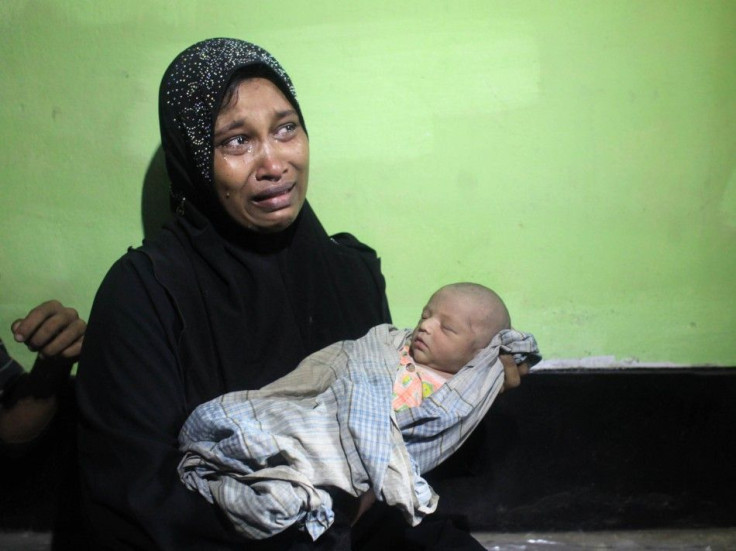The Rohingya Subjected To Rights Violations During State Of Emergency In Myanmar: Amnesty

Communal tensions continued to flare in western Myanmar six weeks into the declaration of a state of emergency in the region, even as targeted attacks and human rights violations by the security forces against the minority community of the Rohingya and other Muslims have increased, said Amnesty International on Friday.
The Myanmar government declared a state of emergency in Rakhine State on June 10, along the Bangladesh border, following an outbreak of communal sectarian violence the previous week. Remote Rakhine is an area known for incidences of sectarian violence between the Buddhist residents and the Muslim minority.
Myanmar's Border Security Force (nasaka), the army and the police have been conducting massive sweeps in the area, leading to the arrest of hundreds of people, some of whom were subjected to ill-treatment, said Amnesty International.
Declaring a state of emergency is not a license to commit human rights violations, said Benjamin Zawacki, Amnesty International's Myanmar Researcher.
In six weeks, Myanmar has not only added to a long litany of human rights violations against the Rohingya, but has also done an about-turn on the situation of political imprisonment, said Zawacki.
After more than a year of prisoner amnesties and releases, the overall number of political prisoners in Myanmar is again on the rise.
The violence subsided two weeks after the declaration of emergency, during which at least 78 people were killed and thousands of homes, belonging to both communities, torched, according to Myanmar's National Human Rights Commission report of July 11. Unofficial estimates of casualties exceeded 100, Amnesty said.
The human rights watchdog said that abuses against the Rohingya and other Rakhine Muslims included physical violence, rape, destruction of property and unlawful killings carried out by both, the Rakhine Buddhists and the security forces.
The Buddhists comprise 89 percent of Myanmar's population while the Muslims represent four percent. The Muslim minority consists of the Rohingya people and the descendents of Muslim immigrants from neighboring India, Bangladesh, China and early Arab and Persian settlers.
According to an Amnesty International report of 2004, the Rohingya have been subjected to various human rights violations under the junta rule since 1978.
The Rohingya's freedom of movement is severely restricted and the vast majority of them have effectively been denied Burma citizenship, said Amnesty in 2004.
They are also subjected to various forms of extortion and arbitrary taxation; land confiscation; forced eviction and house destruction; and financial restrictions on marriage. The Rohingya continue to be used as forced laborers on roads and at military camps, although the amount of forced labor in northern Rakhine State has decreased over the last decade.
Myanmar opposition leader Aung San Suu Kyi, whose National League for Democracy (NLD) won 81 percent seats in the recent parliament elections, is a practising Buddhist.
Buddhist monks and students have always been at the forefront of Myanmar's struggle for independence and later for democracy. In September 2007, the Buddhists took to the streets in a mass uprising against the military junta.
© Copyright IBTimes 2024. All rights reserved.





















